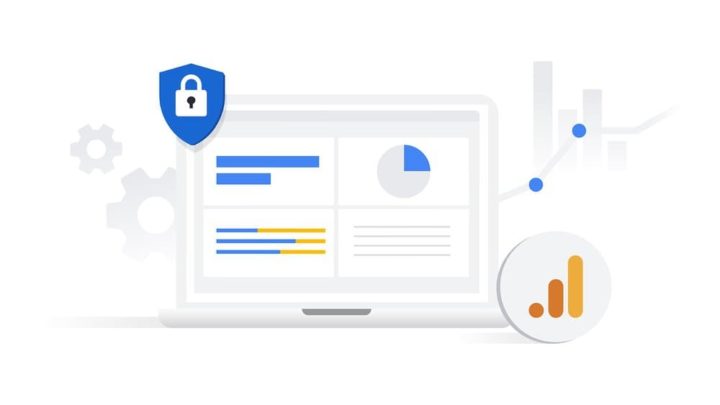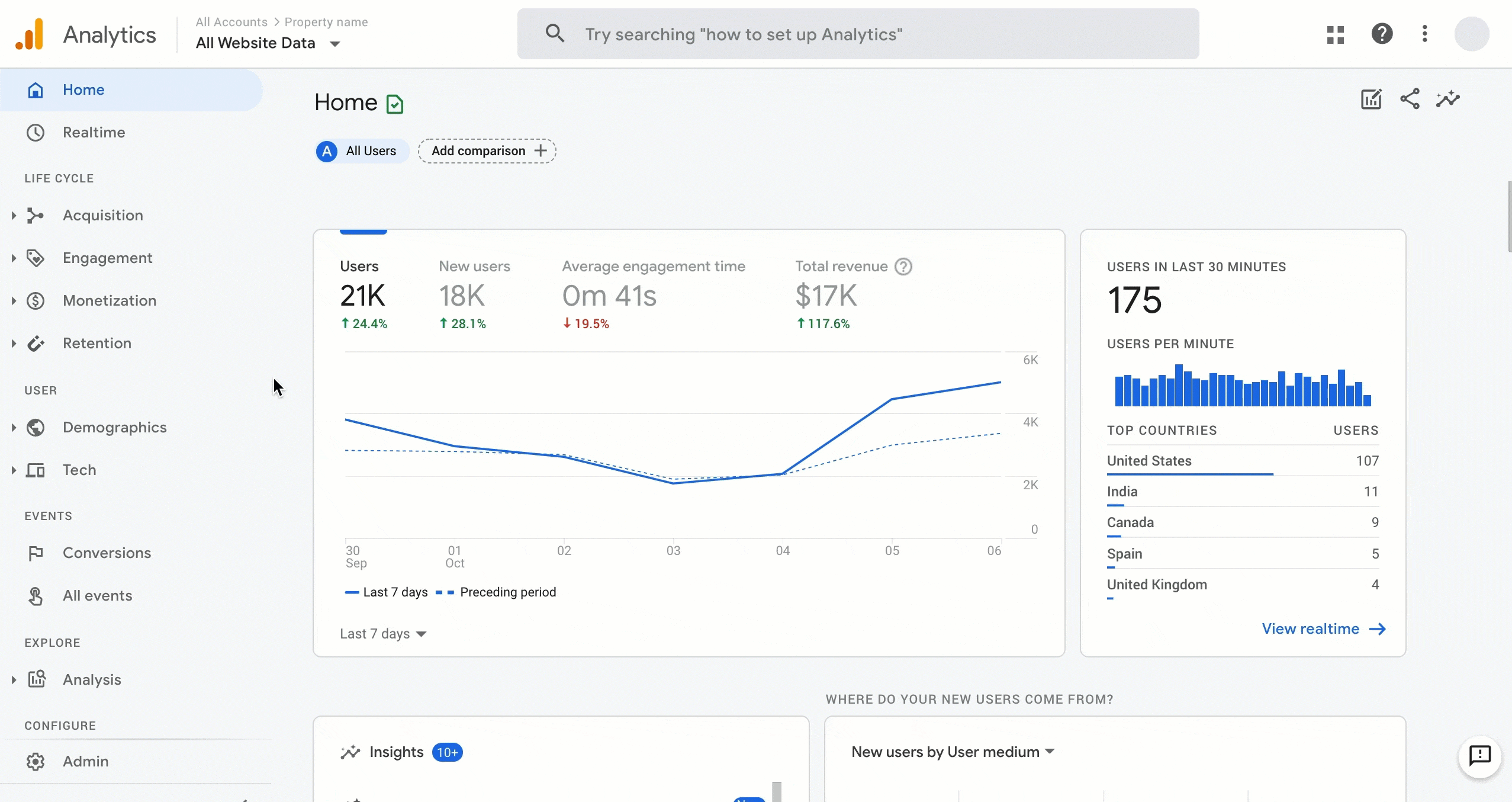Government websites, SNS, PSP and GNR . were Accused this week of providing data For Google, and more specifically, through a tool from the research giant Google Analytics. The controversy led to the suspension of use of this platform. The American company said it was a serious and baseless accusation.
Now, through its blog, Google has come to explain 6 myths about Google Analytics.
Despite trying not to demonize the work of Google tools, the problem was repeated again in the lack of interest that public services have regarding citizen data, Portuguese or not.
In fact, it has been pointed out that a file The state is handing over citizens' sensitive data to internet giants. The search giant is under fire and is now on its way to defending it to demystify some of the issues.
The accusations against Google are 'extremely serious'.
After questions and doubts regarding Google Analytics, Google has just published a post on its official blog in Portugal about the 6 Myths of Google Analytics, with the aim of explaining what Google Analytics does, and most importantly, what it does not do.
According to the company, today we hear many questions in Portugal about Google Analytics, a set of basic and everyday web tools that helps many website owners of commercial, public and non-profit entities analyze data on how visitors use their websites, and can be sure that they provide Services that work for the people they are trying to serve.
Google says the misconception is conveyed that since advertising is an essential part of Google's business, use of this measurement tool by Portuguese health authorities is in fact equivalent to "commercial exploitation".
Out of interest to those who have read or heard about the subject, and out of respect for the mission of the Portuguese health services, Google deals directly with these allegations, Because they are so serious.
For this reason, the company comes to clear up some myths and explains firsthand what Google Analytics does, and most importantly, what it doesn't.
6 myths about Google Analytics
Myth 1: Google Analytics is an advertising product.
Fact: No, Google Analytics is a web analysis tool (with free and paid versions) that allows website and app owners to analyze information from their websites, such as website visit times or user interactions with a new page to understand what works best or not, in order to create Better user experiences.
Google Analytics does not serve ads. (You can read more about this Here. There are other options on the market - you can read more about them Here.)
Myth 2: Google Analytics clients, including government ministries, “give” sensitive user data to Google.
Fact: Google Analytics customers (website owners) do not "give" their data to Google or anyone else. They retain ownership of the data collected on their websites, and Google only stores and processes what is necessary to provide aggregate reports on user behavior on their websites, as well as where applicable to provide and maintain the analytics service.
Website owners, not Google, control how the data they collect with Analytics is used on their websites.
- Google Analytics processes data collected by customers on their websites only as required to provide website owners with the Analytics service. Website owners may choose to share their analytics data with Google separately for some specific purposes, including technical support, measurement, and sales support.
- There is only one data sharing setting ("Google Products and Services" setting) that allows customers to choose to allow Google to use customer data to improve products/services other than Google Analytics. Even when customers choose to turn it on, Google does not use the data to target visitors with their own ads or create advertising profiles for those users.
- Sensitive and personally identifiable information is never allowed in Google Analytics. If website owners want to target ads to their users in their Google Ads accounts, and create "audience lists" in Google Analytics, they cannot rely on any list of sensitive data.
- The charge that Google creates targeting cookies about itself using data from Google Analytics for use in private businesses is also false. Customers can use the data they collect about visitors to their websites to create audience lists, and then direct those lists to their own ads in their Google Ads accounts. Google does not use Google Analytics customer information about its visitors to serve those visitors with ads from Google or other customers.
- In short: Google does not use customer Google Analytics account data for its own ad targeting purposes, nor does it create advertising profiles from sensitive ad targeting data on your behalf.
Myth 3: Google uses data collected by Google Analytics customers for its own purposes.
Fact: Google does not have any rights or intend to use the data collected by website owners through Google Analytics for our own purposes.
We use Google Analytics data only as required to provide and maintain the Service, or as instructed by customers.
- Google does not use the data in the Google Analytics accounts of website owners for advertising or commercial purposes (see Our Data Terms of processing advertising data and the Google Analytics Terms of Service in Portuguese).
- When website owners collect data via Google Analytics, Google uses the data strictly in accordance with the website owners' instructions - for example, to provide reports and analytics about that data - or as needed to maintain and protect the Service - for example, to detect and prevent abuse, abuse and mail Spam, malware, and other malicious activities that compromise the Service or put you at risk.
Myth 4: Google Analytics operates without any visibility or control from web users.
Fact: We offer a web browser add-on that disables measurement by Google Analytics on any website a user visits, in line with our longstanding focus on giving the user control.
In addition to providing robust protection by definition, our goal is to provide intuitive, easy-to-use, and useful controls so you can make the right choices for you. You can choose the use of cookies and how they are used by the websites you visit and block all cookies on some or all websites.
Additionally, websites using Analytics must comply with our policies, which means they must:
- Notify you about the Google Analytics apps and the features they use, including warnings about the data they collect through Google Analytics and whether that data can be linked to other data they have about you.
- Obtain your consent or otherwise give you an opportunity to decline executions and remedies as required by relevant laws in your market.
Myth 5: Google (or anyone else) keeps "profiles" based on data from Google Analytics. This data can "escape" to external entities.
Fact: Google does not create Google Analytics user profiles, and does not use Google Analytics customer data for its own ad targeting purposes.
No Google Analytics cookie (identifier) contains personally identifiable information, which is a unique identifier for your specific visit to that particular website, which means that Google Analytics does not track you across other websites or out of a particular context.
- The Google Analytics ID does not contain any identifiable information. The data associated with your visit (for example, the type of device, the time you arrive and leave the website, and where in the world you log in) is associated with a random set of numbers and cannot be used to identify you.
- Any personalized advertising based on Google Analytics data is performed by the owner of the website itself (the Analytics client), and not by any third party "advertising company". Google does not share customer analytics data with any advertising company.
- Website owners are not permitted to collect personally identifiable information about you through Google Analytics. If they do this unintentionally, we provide them with various data deletion tools to instantly remove data from our servers.
- The Google Analytics Terms of Service prohibit website owners from providing personally identifiable information or information that Google may use or identify as personally identifiable information to Google.
Myth 6: The use of online advertising services or advertising cookies by a government ministry means that ads are shown based on sensitive information such as health, race, sexual preference, etc.
Fact: Even when a website uses a cookie for advertising cookies, it does not mean that it is "tracking" or collecting sensitive information about you.
- It can also be used, for example, to prevent the same public service ad from being shown to you over and over again, or to help the Ministry of Health understand if its ads are working as intended, if they're on budget, not being scammed by scam artists, etc.
- In any case, Google does not create advertising profiles from sensitive interest categories such as health, and we have strict guidelines إرشادات which prevent advertisers from using this data to target their ads.
- In short: no health ministry in Portugal or anywhere else has permission from Google to use your sensitive health information to target ads to you.
We welcome the interest in these important open web tools, as well as the opportunity to explain ourselves to citizens of Portugal and beyond.

“Wannabe internet buff. Future teen idol. Hardcore zombie guru. Gamer. Avid creator. Entrepreneur. Bacon ninja.”




